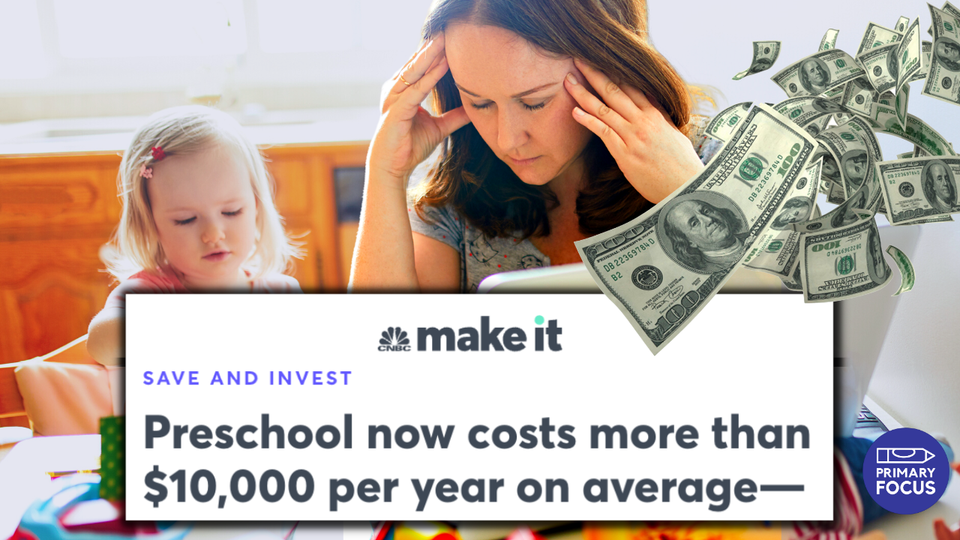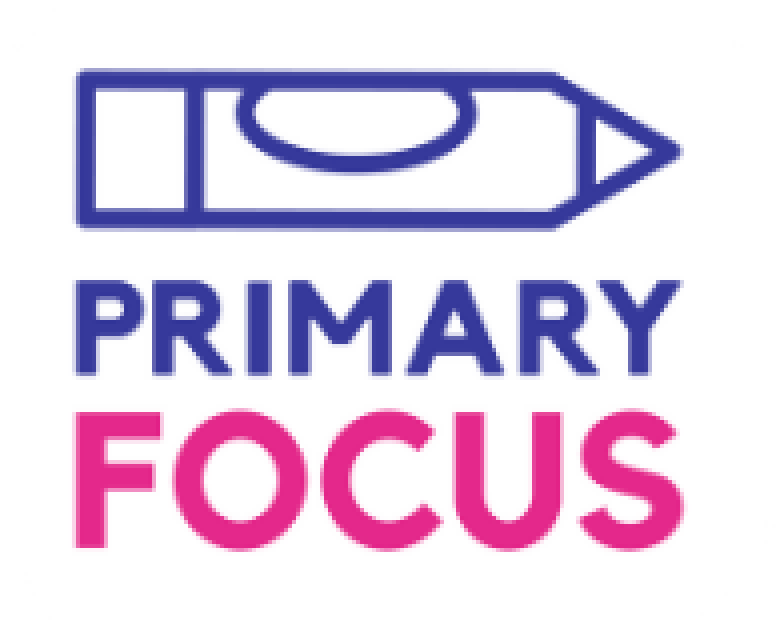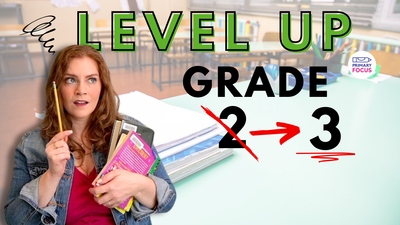
Do You Have to Send Your Child to Preschool?
Many parents wonder whether preschool or pre-k is necessary for their child’s development. The answer is no—preschool is not mandatory. However, it does offer valuable opportunities for children to build important skills that will prepare them for kindergarten.
What Do Children Learn in Preschool?
Preschool programs focus on helping children develop in several key areas:
- Social-emotional skills: Learning how to share, cooperate, and manage emotions with peers.
- Academic foundations: Basic literacy and math skills, such as letter recognition, counting, and problem-solving.
- Life skills: Developing routines, listening to instructions, and gaining independence.
Preparing Your Child Without Preschool
If you choose not to send your child to preschool, it's still important to offer similar learning experiences at home. Activities like play-based learning, reading together, and encouraging independence in daily tasks (such as getting dressed or setting the table) can help prepare your child socially and academically for kindergarten.
Conclusion
While preschool is beneficial, it’s not the only path to preparing your child for school. With the right activities and support, you can create a rich learning environment at home to ensure they’re ready for kindergarten.
Need Extra Support?
For parents looking for a more structured approach, my "Prepare Your Child for Kindergarten" course can help. It’s a 5-week, self-paced program designed to build the skills kids need to thrive in school. You’ll get simple activities to try at home and two live Q&A sessions to answer any questions.
Preschool is optional, but helping your child prepare for kindergarten is essential. Whether through a formal program or at home, what matters is giving your child the right support.
Interested? Get more information here

Transcript:
Y'all, I was wrong.
I used to say all kids needed to go to preschool, and that preschool was pretty much the only thing that could prepare a child for kindergarten. I was just repeating what I was told. And I was championing one of my favorite causes, education.
But I didn't realize how freaking wrong I was.
Here's what I didn't know. The average cost of preschool in the United States is 10, 000.
So yeah, it's great if you can get your child into preschool. But for many, this is a real pipe dream.
Only about 50 percent of American children go to preschool, and that's because it is completely inaccessible for most people.
It's expensive, it's exclusive, any free or reduced cost preschools are really hard to get into, with long waiting lists and low capacity. And many preschools, probably most, are half day, only open for a couple of hours.
So unless you're staying at home, you'll need childcare before and after to get your kids to preschool.
I polled my Instagram followers and you replicated the norm. 50 percent of you said that you did send your child to preschool
I asked my YouTube community as well and the same thing happened. Fifty percent of you said yes, you did send your child to preschool, and the rest of you either said no or does daycare count?
When I asked if you could find affordable preschool, 62 percent of you said nope, it was all expensive.
It wasn't until my own friends started having kids, that I realized just how many of my friends could not get access to preschool, including my teacher friends who absolutely want to send their kids to preschool.
And then I realized, it's the kids who socialized with other children that adjusted to kindergarten most quickly. It didn't necessarily have to be preschool. My daycare babies also showed up confidently on their first day. My kids who have been out in the world and away from their families were ready to come to school.
In this video, I'm going to walk you through the advantages of preschool, and if you can't send your child to preschool, if you don't want to send your child to preschool, if preschool just isn't going to happen, how you can replicate this at home.
Oh, and just a note here, for simplicity of language, I am wrapping up preschool, pre K, transitional kindergarten all into one here and calling it preschool. We're talking about an enriching academic program for four to five year olds before they enter kindergarten.
Marker
Why should you listen to me? Well, I was a teacher for 10 years and I spent most of that teaching kindergarten and first grade. These are the grades that have the most impact if your child did or did not go to preschool. I've worked with children of all socioeconomic backgrounds and ethnicities. I've taught kids that have been to the highest Yelp reviewed, most expensive, most exclusive Montessori preschool programs, and I've taught kids that have never left their mother's side. And there's a difference between these kids. Big differences. But with intention, you can replicate this and give your child a fighting chance at being kindergarten ready.
So let's get into it
Day one of kindergarten. Here's what I, and I mean kindergarten teachers, are looking for. Independence. Can they problem solve? Can they make decisions and just generally function without consulting an adult?
When your child walks into that classroom, we are watching to see if they can figure out how to find a chair or make their way to the rug and pick out a spot to sit. Will they remember their backpack at the end of the day?
Number two, speaking and listening. Not just manners, but how they communicate, how they ask questions, advocate for themselves, and most importantly, how do they interpret directions, and are they listening for directions?
Number three, some basic academics. Listen, the bar is low. You can't expect too much when it's literally the first grade of their school career. But the more they know, the more they know.
Number four, some signs that your child may have special needs, whether this is getting support from a speech therapist, the occupational therapist, or signs that they may have a learning disability, we are watching out for these things. It's hard to tell in those first two weeks of school, especially on the first day, what your child actually needs, but this process can take a long time. So the earlier the teacher starts looking for these signs, the better.
And number five, how they interact with the other children. Are they outgoing? Are they waiting back for somebody to ask them to play? Are they able to deal with conflicts that arise?
You might have noticed, of these five points, only one, maybe two of them have to do with academics. And that's because so much of preschool and kindergarten is teaching them to be people. I can't teach you to write if you don't know how to sit at a desk correctly. We can't focus on addition if you're so overwhelmed with anxiety, missing your family.
And it's hard to start the day right if you can't manage your lunchbox, your coat, and your backpack.
So yes, in kindergarten they will focus on a lot of academic material, but we can't get anywhere until you have some basic independence. The first six weeks of kindergarten in particular are intense for kids that lack independence.
They are expected to do a lot independently in school. And the teacher is counting on them to learn these routines so that when the challenging content does begin, your child is comfortable enough in school to be ready for it.
based on these five points, I'm going to walk you through ways to replicate preschool at home.
Overall, though, it's consistency that matters. You can't just do one of these things once or twice. These experiences need to be happening on a weekly basis for at least a few months. So if you can commit to a year of prep, that's great. But if kindergarten is around the corner, then double down in those few months before.
It's going to take time for your child to build these skills.
Let's talk about independence.
The great thing about independence is it will naturally tie in with the other points. So everything that you do, consider if it is building your child's independence. This is a theme that you will hear from your child's kindergarten teacher again and again. And it is completely normal for kindergarten teachers to let children struggle with things independently because it helps the learning process, it helps your child rely on themselves, and even though it hurts in the moment, it builds self confidence as well.
The key here is teaching your child to function without you. Independence starts together. So pick out a few tasks. Maybe it's a chore that they can do. They need to bring their water bottle to the car and out of the car every time you're going for a ride. Feeding the dog, build this into the daily routine.
Problem solving is a big part of this. At home, it's more acceptable if a child seeks out an adult's help. But at school, it is just not realistic.
Give them a toolbox of ways that they can get help without going to an adult.
This starts really simple. For example, if your child lost their pencil, would they know to look underneath the worksheet that they're working on, check the floor, look around at the table, before going to you and asking for help? You'll be surprised how many kindergartners will just burst into tears or run over and beg the teacher for a new pencil when they haven't even looked to find it yet.
Give your child unstructured playtime as well. Being able to entertain yourself is really valuable. And when you are with other adults, set the expectation that they are playing independently and that you're getting your time with your adult friends.
teach them rules about interrupting and let them experience what it feels like when you are busy. Children are capable of so much more than we give them credit for, so give them a chance to show you just how independent they can be.
Let's hop into speaking and listening. Half of communicating is listening. Your child needs exposure to other adults so that they can hear multiple styles of communication. They need to have the experience of taking directions from an adult that they don't know that well, but they are supposed to be listening to. It can be really scary for a child to hear commands or receive feedback from somebody that isn't a parent. But if the first person that they are receiving this from is their teacher, it can make for a tense year.
Teachers unintentionally scare children, intimidate children, and a lot of that is because their tone is different than their parents tone. So if they are used to hearing lots of different styles of communication, it will help them with this.
So that's the listening, but on the flip side for the speaking, your child needs to know how to advocate for themselves.
They need to know how to ask to go to the bathroom, they need to know how to share that they need help with their work. How to raise their hand and say that they didn't get a copy of the worksheet.
The single best way to start this is by letting them go to activities away from you. You can start small by letting them play over at other kids houses, but I highly recommend getting them into a weekly structured activity, like a dance class, music lessons, karate, something where they are in a small class community and they can experience what it's like getting direction from a teacher.
I hate to recommend something that costs money knowing that preschool is so expensive, but the more activities like this that you can get your child in, the more they will benefit. It is just hard to recreate a classroom experience if you are right there or they are in their home. Getting them out into the world and giving them these tastes of independence will make them so much more independent once they enter the classroom setting.
Let's get into academic.
Honestly, if you have time, this may be the easiest one. I don't want to discount teachers here, but there are so many resources and people online that will help you see how to teach your children that you can do this at home with limited cost.
I think about when I had my first kindergarten class that came in from COVID. I had so many kids that really struggled socially, but they were so smart because their parents had the time to sit down and teach them all these things.
So that class that year, we didn't have to worry as much about the academics, but we had a lot to talk about, about interacting with other children. A few tips. The more your child knows about the alphabet, the better.
I have a great video up here that I'll tag that shares great ideas about how to teach the alphabet at home.
When it comes to reading stories, make sure that your child can follow along with the plot and answer some basic questions about the characters, their feelings, the beginning, the end, and what's generally happening.
Your child will listen to a lot of stories in preschool and kindergarten, so if you can stop after every page or two and ask them to summarize what just happened, that's going to teach them to really keep paying attention with what's happening in the book.
Teaching your child some basic handwriting is okay, but don't worry too much about the size of their letters or the neatness. You want them to do the correct form so that they are making the letters the right way, but their actual hand needs to build muscle and continue developing I think a lot of parents really want to focus in on how their four year old's handwriting is, but developmentally, you're not going to start to see those small, neat letters for maybe another year or two.
When it comes to math, things like counting up to 20, maybe writing their numbers 1 through 10. Again, it doesn't have to be perfect, but if they can generally write those numbers. If they can compare numbers 1 through 10 and talk about which ones are more, which ones are less. 2D shapes are great and a lot of preschool programs do talk about some of the more common 3D shapes.
So we're talking about your sphere, your cube, your pyramid.
when it comes to things like science, discussing the weather, the seasons, how to dress for those, maybe various types of animals,
social studies, we're talking about names of family members, maps and the concept that there are different countries.
A lot of the things that will come up in your day to day talking, just diving in a little bit deeper into those topics.
And then, practically speaking, using scissors and glue, a glue stick, and liquid, taking care of their materials like crayons. It is really common for kindergarten teachers to give them a box of crayons and then put it in a Ziploc bag. Hopefully they'll have the slider bags, if your child is able to organize and manage that, it will give them the upper hand.
Okay, so number four, your special needs. This is a little more nuanced. You only know what you know, and a lot of children with special needs are working with professionals that have entire college degrees in these types of needs.
And age four or five, that kindergarten preschool age, seems to be where a lot of the support and a lot of parenting books just kind of drop off. This was a lot of my inspiration for starting Primary Focus, a lot of parents are left in the dark and don't know how to support their children. unfortunately, this is where a lot of special needs, especially learning disabilities, are diagnosed.
So talk to your pediatrician. and if a professional is indicating to you that something could be wrong, something feels a little bit off, just listen to them.
When your child is playing with other children their age, and you should keep in mind if that child has entered school or not, just kind of watch. Does your child move in a similar way to how that child moves their body? Are they pronouncing words the same way? For example, none of the four year olds I know can make the R, the rrr sound, but they should be able to make the tt, letter T sound.
I think about that time in the pandemic where a lot of kids were abruptly pulled out of school. A lot of children just didn't go to preschool at all that year where we all came back in person, there were quite a few kids that year in kindergarten that should have been screened and diagnosed with a Learning disability or been getting support with speech therapy that simply were not getting that.
And they were at a huge disadvantage in kindergarten because they could have already had a year of support under their belt. They could have already had paperwork qualifying them to get these services in school. Qualifying for special services can take months, it can even take up to an entire school year.
So what do you do though if you know your child can't go to preschool? If you're seeing some signs and some concerns, try to get help from a professional.
You may be able to access free or low cost resources. And the more you know, the faster you can start this process once your child is in kindergarten. If you are suspicious your child has special needs, I would try to get them into a preschool program.
And so number five, interacting with other children. In my opinion, this is the most important
even if your child has a lot of cousins, siblings, and close friends this does not replicate the experience of learning how to treat new friends, how we engage with kids that we don't know yet, and how to get to know somebody. for example, every year in kindergarten, I would have a few kids that needed a chat about kissing, not like that. In families, moms and dads and siblings are giving each other a little kiss sometime to show that they care. But in school, we're not kissing our classmates. And I always had to have a sweet, tender talk with kids that tried to give a kiss. But I think kids that had been in school a little bit longer or in these settings had already kind of learned these things when they were younger and didn't have to maybe go through the embarrassment of Oh, K I S S I N G when it was just a totally innocent thing.
Other issues that came up a lot were playing too rough. kids tend to play much more rough with their siblings or close friends. you can run up and jump on your cousin's back, but that is not okay for day to day playing on the playground.
But the biggest issue I saw overall was children struggling with disappointment. At home, children will be told yes more often than a no. They are free to roam their home, there are toys available to them at all times, there's a lot more wiggle room to let a child do what they want when they're at home.
But school is rigid. There are so many more rules and boundaries.
Teachers have to move with the group. They have to make decisions with dozens of kids in mind
a lot of times teachers can't make special exceptions or listen to negotiations. No means no. kids need to experience this to understand that the teacher loves them even if they are telling them no. It is hard to replicate this experience as a parent, so they need to have experiences outside of their home.
If you're looking for things that are a little bit lower cost, maybe you can consistently make it to a library reading time, kids gyms, a busy playground, and just take them in public as well.
Run errands with them, so they can kind of experience what it's like to be out there in the real world and the difference between how we act at home versus how we act in public.
I want to wrap up here by talking about some studies about preschool. A lot of people like to throw around studies that have been done over the years to argue whether preschool is beneficial or not. But here's the issue with studying young children in school.
There are just so many variables, it can make it really hard to make control groups and do a proper scientific study. The concept of going to preschool in itself is just so big. It's not like studying a specific reading program that you guarantee that the children are going to do 30 minutes a day for one year.
Going to preschool is, is a nuanced thing. What if kids are absent? What if they come from a specific background? Is it pushing academics? Is it all play based? There's just too many variables.
I will say, overall, trends show that preschool is a good thing. And you can see there are nations around the world that have invested a lot of money in giving universal preschool to children.
You may see people pointing to the Perry Preschool Project, which found that preschool put children at a disadvantage. People who are against funding universal preschool, or people trying to justify not sending their child often point to this study.
But this study was really small, and it's really the only study out there saying preschool is bad for children. If you look closer, and I will link an article , there were some inconsistencies with this study. And it focused specifically on children growing up in poverty.
One thing that we do know is that children growing up in poverty need a lot more than just a good education. Teachers can only do so much. And if a child's basic needs aren't being met, how can we expect their test scores to be good? And as much as those kids do benefit from going to preschool, as a society, we need to help lift up our families that are living in poverty.
Do what works for you. Being able to stay at home and replicate preschool and pay for karate is a privilege. A privilege of time, of money, health, support. You don't have to turn your living room into a preschool to have your child succeed.
But what you do need to do is be involved in whatever way that looks for you.
And be intentional about it. I've taught hundreds of kids that have all started the year of kindergarten off in a different place. It's the kids with parents that value their child's education that succeed. It's the ones with a parent that looks at the report card, checks the folder at night, takes the time to read together, and asks their child about their day at school that make it.
The rest will get figured out. You got this.
Thanks for watching today. I want to hear your preschool story below. What are you doing? What aren't you doing? And what are you still wondering?
And while you leave your comment, make sure to subscribe to Primary Focus. My name's Natalie. See you next time.
The Primary Focus newsletter shares the clarity, language, and support every parent needs to feel confident - right in your inbox.






